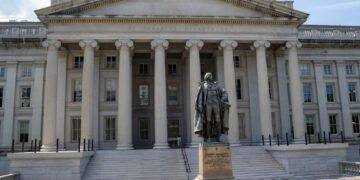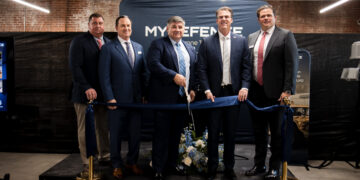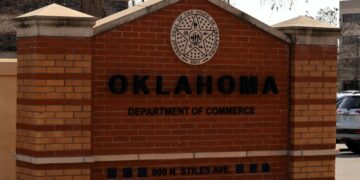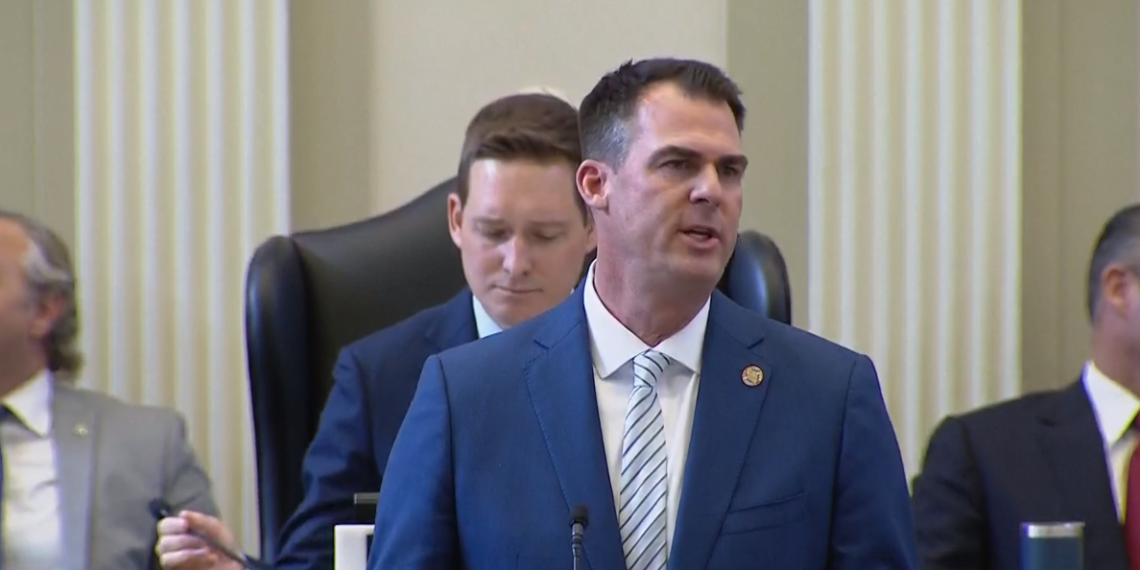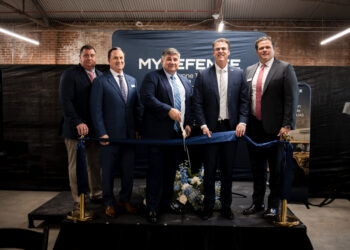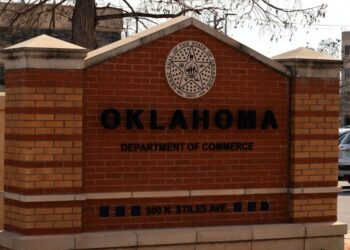OKLAHOMA CITY (OBV) — Gov. Kevin Stitt and the Chickasaw Nation finalized new tobacco and vehicle tag and registration compacts on Monday, an accomplishment that was praised by Senate President Pro Tempore Greg Treat.
The governor also finalized a tobacco compact with the Apache Tribe of Oklahoma.
“We now have fully executed tobacco compacts with both the Chickasaw and the Apache tribes that maintain jurisdictional continuity in Oklahoma,” Stitt said on Monday. “We also finalized a car tag compact with the Chickasaw tribe that ensures Oklahoma law enforcement can confidently identify vehicles on the road and guarantees that our turnpikes can read tribal tags. For the safety of all law enforcement, and for tag compacts to be workable, the state must have uninhibited, up-to-date access to driver registration information, and this agreement ensures that.”
Chickasaw Nation Governor Bill Anoatubby said the new compacts demonstrate how the state and tribes can succeed when they work together.
“The Chickasaw Nation is pleased to announce we have worked with Governor Stitt’s office to continue these important compacts for another 10 years. We built on areas of agreement without waiving or limiting the rights of either party or requiring either party to yield on matters where there may still be legal dispute; and we appreciate the Oklahoma Legislature providing us additional time to work on these agreements,” Anoatubby said. “It has long been our policy to exercise sovereignty and pursue sound intergovernmental agreements. This work, done properly, strengthens the Chickasaw Nation and Oklahoma. We believe our new agreements are good examples of what can be done when we work together, and we are glad they will benefit all of us who call Oklahoma home.”
Both the tobacco and motor vehicle tag and registration compacts will be in effect for 10 years.
The tobacco compacts contain the following provisions:
- A 50/50 split between the state and tribal governments on tobacco sales from tribal smoke shops on trust land.
- A jurisdictional definition that is limited to tribal trust land and restricted allotments in alignment with the historical understanding of Indian Country in these tax compacts.
- Express preservation of legal rights regarding jurisdictional or other matters arising outside the limited compact jurisdiction.
The provisions for the tag and registration compact include the following:
- Oklahoma will continue to print Chickasaw plates and collect driver information for each tag, ensuring accessibility for law enforcement and public safety.
- OTA will have access to driver information for the purposes of collecting tolls.
- The state will remit a percentage of receipts associated with licensing, registration, renewal of registration, and payment of excise taxes.
“While I’m glad we could come to an agreement on these compacts, I still believe there is work to be done to ensure we are not further eroding Oklahoma’s revenue base in order to continue to provide public services to people across the state,” Stitt said. “I continue to welcome other federally recognized tribes in Oklahoma to engage with my office in the compacting process.”
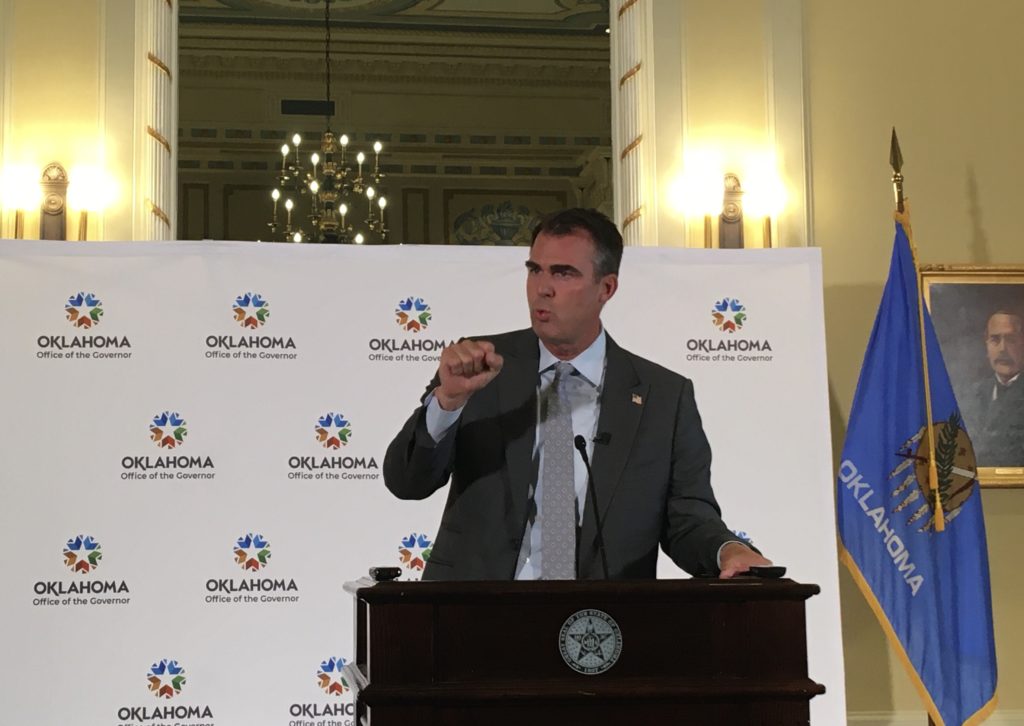
Stitt vetoed the Oklahoma Legislature’s vote to extend tobacco and vehicle registration compacts with tribes this past summer. The legislature later overturned Stitt’s veto. Stitt filed a lawsuit in Oklahoma Supreme Court against Senate Pro Tem Treat and House Speaker Charles McCall, arguing that the power lies with the governor to negotiate compacts. Stitt alleged that the existing compacts effectively turns Eastern Oklahoma into a reservation and that tribal governments argue that reservations exist for all purposes.
Treat, R-Oklahoma City, once sharply criticized Stitt for vetoing the compact extensions and filing the lawsuit. He is now praising both the tribes and the governor for finalizing the new compacts.
“This is a major win for the state of Oklahoma and our tribal partners,” Treat said. “It also highlights the importance of the progress we can make as a state when we work together. I applaud everyone involved, including Chickasaw Nation Governor Bill Anoatubby and Governor Stitt, who negotiated these compacts. I also appreciate my colleagues in both the Senate and House who came in during our special legislative session several months ago to override vetoes of the extension to the existing compacts, which gave more time for further discussions that led to this resolution. Without our action, I do not believe this would have come to fruition. These agreements with the tribes bring in millions of dollars to the state annually and go toward essential services that benefit all Oklahomans. This is a step in the right direction and something I hope we can build on moving forward while fostering positive relationships with our tribal partners.”
Sen. Greg McCortney, R-Ada, also lauded the new compacts.
“First and foremost, I want to share my appreciation for Governor Stitt and his team for their efforts to negotiate and enter the tobacco and vehicle tag compacts with the Chickasaw Nation, one of our state’s largest and most economically diverse tribal nations,” McCortney said. “These agreements show promise that our state-tribal relations are moving in a positive direction and offers hope that we’ll see more tribes signing compacts soon. Oklahoma’s economy, services, infrastructure, and most importantly, our people, will benefit as we continue to work with our tribal partners and leaders.”
The state’s tobacco compact with the Chickasaw Nation is directly below:
The state’s vehicle tag and registration compact with the Chickasaw Nation is directly below:
The state’s tobacco compact with the Apache Tribe of Oklahoma is directly below:


